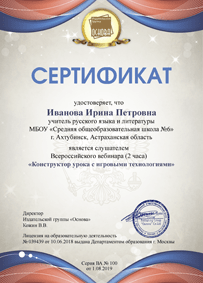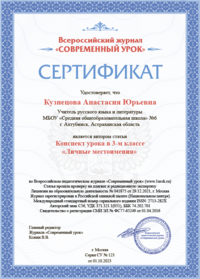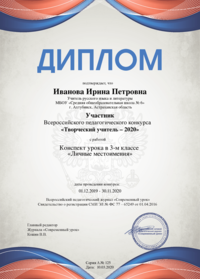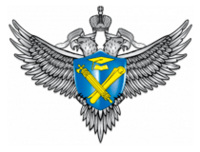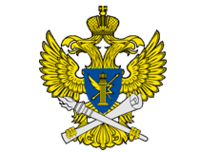Урок-смотр знаний «Английский язык в мире»
Автор: Поландова Светлана Михайловна
Организация: МКОУ СОШ с.Спарта
Населенный пункт: КЧР, Адыге-Хабльский район, с. Спарта
Цель урока: - актуализация знаний по теме «Английский язык – язык мира».
- привитие обучающимся чувство толерантности, дружелюбия и уважительного отношения к иностранному языку;
- расширение кругозора по страноведению;
- стимулирование интереса учащихся к изучению английского языка;
Задачи урока:
- актуализировать материал по теме «Английский язык- язык мира»;
- развивать умения в чтении, устной и письменной речи;
- развивать общекультурные умения при систематизации и обобщении материала.
Основная идея урока: английский язык – язык мирового общения
Оборудование: плакаты с заданиями для домашней работы, интерактивная доска, карта страны, тексты для чтения, иллюстрации по теме «Великобритания».
Ход урока
I.Организация класса на работу, целевая установка.
(Знакомство учащихся с целями и задачами урока. Программа урока записана на плакате и видна всем – жюри и учащимся)
T: Good morning children.
How are you today? Are you ready for the lesson? Now I see that everybody is ready for the lesson and we can start our lesson.
Our lesson today is devoted as usually to the English language but we’ll not only speak English, we’ll speak about English.
Задание 1. (для снятия напряжения, волнения.)
T: You have a picture with 4 faces. They are “OK”, “BAD”, “GOOD”, “SO-SO”. Take a card and draw a face according to your mood. If your mood is fine draw “GOOD”, if your mood is good draw “OK”, if your mood is bad draw “BAD”, if your mood is so-so draw “SO-SO”.

II. Речевая зарядка
1) What do we usually do at our English lessons?
2) Do you like to speak English?
3) How often do you have English lessons?
4) Do you like to sing songs?
Now, try to guess what country I will describe.
1) It is the second largest country in the world. There are two official languages in this country English and French.
2) This country occupies a whole continent. It has strange animals and plants. It’s very far from our country. Sometimes this country is called “The Lucky country”
T: Now children, look here!
(Два задания под заголовками «Everything Under the Sun” и «Quiz on Great Britain” вывешены в классе за 2 недели до урока для самостоятельной подготовки).
- «Everything Under the Sun”- в форме быстрого фронтального опроса выполнить задания:
- Name 3 things you can do.
- Name 5 things that boys wear or 5 things that girls wear.
- Name 5 things that you put on the table for breakfast.
- Name 5 professions.
- Name 5 hobbies or 5 sports.
- Name the 4 countries of the UK.
- Name the 4 months of the year.
- Name the days of the week.
- Name 5 things in your classroom or 5 school subjects.
- Name 5 sorts of fruit or 5 vegetables.
- Name 7 colours.
- Name Eanglish-speaking countries.
III. “Quiz on the UK.” – викторина по карте.
You have got already information about Great Britain: its people, customs, traditions, way of life, sights. We have read books, watched films. And now it’s time to know learnt more than others about Great Britain.
Look at the map and see how many countries of the English-speaking world you can name.
Where is the UK situated? (on the British Isles)
Where do men wear kilts? (in Scotland)
Where is the monument to Admiral Nelson? (in Trafalgar square)
Name three countries of Britain. (England, Scotland, Wales).
What is the longest river in Britain? (The Severn.)
What is the second large city after London in the UK? (Birmingham).
What is the biggest port in the UK? (Glasgow.)
What are the capitals of England, Wales and Northern Ireland?
(London, Cardiff, Edinburgh, Belfast)
What is the highest mountain in Wales? (Snowdon; 1,085 metres high).
What is the highest mountain in Scotland?
(Ben Nevis; 1,343 metres high).
On what river does London lie? (on the river Thames).
On what river does Glasgow lie? (on the river Clyde).
What are the main ship-buildings centres in the UK?
(London, Glasgow, Belfast).
What is one of the largest and most famous lakes in the UK?
(Loch Lomond).
Name the main nationalities of the people who live in the UK.
(English, the Scots, the Welsh, the Irish).
IV. Знакомство и беседа с иностранцем.
T: Children? Foreingers often come to our country. Imagine a deligation from Great Britain. They are teachers. You’ve met one of them. Introduce yourself. What would you like to ask and to hear about?
Example: P: Excuse me.
F: Yes?
P: May I ask you?
F: Yes, certainly.
P: I know you are from Great Britain and I’d like to introduce myself and talk with you.
F: I see. I’ll be very happy to do so.
P: Thank you. My name is Vera. I am a pupil of the 7th form.
And what is your name?
What is your profession?
Do your work?
What languages do you speak?
Do you have a large family?
What’s your hobby?
Have you got any pets at home?
Do you often go to the cinema?
What TV programme do you like best of all?
How do you spend your weekend?
( вырази свое мнение!)
Например: “ It’s a very interesting profession”, “Is that really so”, “I agree with you”, “Wonderful!”
T: Thank you. And now try to tell about yourself. (пример рассказа одного ученика о себе).
P: My name is Vika. I’m 13 and I’m in the 7th Form. My hobbies are music and drawing. I enjoy watching TV programmes. My family is not large but friendly. We have a big house and many pets. I’m interested in dancing, football, chees. My favourite subjects are English, History, PE. I think a highly educated person must know foreign languages. I have many friends. We often meet after school and we are involved in different school activities.
V. Пословицы и поговорки.
(Карточки с английскими пословицами и поговорками и их русские эквиваленты).
О дружбе:
1.«Для друга и семь верст –не околица»
One can cross the whole land for a friend
2. «Друзья познаются в беде»-
In need one sees who his friend is
О труде и знаниях:
1.Повторенье –мать ученья.
Use makes the craftsman.
2.Ученье - свет, а неученье - тьма.
Learning makes people wise.
3. Идеи мира и добра
1.Нет худа без добра.
Every cloud has silver Using.
2.Худой мир - лучше доброй ссоры.
Better a lean peace than a fat victory.
T: The language helps us in life, to be tolerant, friendly and to live in peace.
Now, children, let' s sing song about peace.
(Дети исполняют песню « Мы все преодолеем» на английском языке)
VI. Задания на проверку навыков устной речи. (варианты заданий)
Well, let’s talk about languages.
- Translate into English:
- Извините, могу я к вам обратиться?
- Да, пожалуйста.
- Не могли бы вы мне сказать, как пройти к Британскому парламенту?
- Сожалею, но не могу помочь вам. Я здесь впервые.
- Excuse me…
- Yes?
- Could you tell me the way to the British Parliament?
- I’m afraid I can’t help you. This is my first visit here.
2. – Здравствуй, Дэвид. Как поживаешь?
- Спасибо, хорошо. А ты?
- Hello, David. How are you?
- Fine, thanks. And what about you?
- Простите за беспокойство.
- Да что вы, какое же это беспокойство?
- Excuse my troubling you.
- No trouble at all.
VII. Грамматика. Who-questions, What – questions, When-questions.
1.Who wrote “Romeo and Juliet”? (W. Shakespeare)
2. Who is the head of state in Great Britain? (the queen)
3.Who is the Queen of the United Kingdom of Great Britain and Northern Ireland? (Elizabeth, П)
4.What colour is the British flag? (white, red, blue)
5.What is the name or the river in London? (The Thames)
6.What is the main square in London? (Trafalgar Square)
7.When do English people usually drink tea? (at 5 o’clock)
8.When can you see the flag over the Queen’s Palace? (when she is at home)
9.When is the queen’s official birthday? (2nd Saturday in June)
10.When is Christmas celebrated? (25th of December)
VIII. Проверка умений в чтении. (беседа по содержанию прочитанного).
What would you say in the following situations?
Traditions and customs
Every nation and every country has its own traditions and customs. In Britain traditions play a more important role in the life of people than in other countries. They say British people are very conservative . They are proud of their traditions and carefully keep them up. But when we speak about British traditions we always remember that there are four parts in Britain — England, Scotland, Wales and Northern Ireland. Traditions are different in these parts of the country.
You already know some of the English traditions and holidays. We hope you remember St. Valentine's Day, St. Patrick's Day, Halloween which have also become traditional American holidays. Here are some more facts about old English traditions.
One of the old English legends says that London can be the capital of the country, rich and great until twelve black ravens live in the Tower of London. Each has got its name and the keepers carefully look after them. If one of the birds dies, another younger raven takes its place. Londoners believe this legend and always bring some food to give to the birds when they come to the Tower. The keepers cut the birds' wings a bit as they are afraid that they may fly away.
Another old English tradition is Guy Fawkes Day. Children go out into the streets on the 5th of November with figures like scarecrows. They stand in the streets and squares asking for the usual "Penny for the Guy". Then with the money they have collected they buy fireworks and burn the guy (the figure like a scarecrow) on their bonfire.
People watch fireworks and some people go to parties in the evening.
Though different countries have different traditions and holidays people all over the world know some of them. They are — Easter, Christmas and New Year.
SCOTLAND
Although Scotland forms a part of the United Kingdom, it has a distinct character of its own. In area it is more than half as big as England. Its population is, however, only one-eighth as great — about 5 200 000.
Scotland is a land of romance and it has had a most eventful history. The Picts and Celts lived there before the coming of the Romans to Britain. Those Northern tribes worried the Romans so much that the Great Wall was built to protect the Roman camps in the Northern part of England.
It was in the 11th century that the Normans began to settle in Scotland. Almost all of Scotland's history is associated with and reflected in many castles and forts that are to be seen all over the country. They are very picturesque, having retained their medieval features: stern, proud, impressive, perched high on a rock or at a hillside. Mary, Queen of Scots, the beautiful Mary Stuart was married in one of them, her son James (who was to become James I of England) was born in another.
And now some words about the Highlands. For centuries the Highlands were a strange land, where the king's law common to all the rest of the country, wasn't even known, where wild people spoke a language no one could understand. Long after the rest of Britain adopted modern ways they kept to the old life.
In 1603 King James VI of Scotland became King James I of England too, and from then onwards the countries were under the same monarch, though the Act of Union was not passed until 1707. This Act incorporated Scotland with England in the United Kingdom, but the Scots kept their own legal system, religion and administration, centered in Edinburgh.
Edinburgh – the capital of Scotland has always been admired as one of the most beautiful cities. Glasgow – its second city – always had a bad reputation. It was too often seen as a dirty, run-down urban area. But no longer. The buildings have been cleaned up, the streets are tidy and the people now take an obvious pride in their city. Glasgow was chosen to be the cultural capital of Europe 1890.
Подведение итогов урока. Выставление оценок.
T: Today we have discussed English as a language of the world. Each person has his own aims and reasons. So studying English language is interesting and can be fun.
Литература:
Журнал «Иностранные языки в школе».
Толковый словарь английских пословиц. Авторы: Р.Райдаут, К.Уиттинг.
Книга для чтения «О Британии вкратце».- пособие по страноведению.
Учебник «English- 7», авторы учебника: В.П. Кузовлев, Н.М. Лапа;
Пособие к базовому курсу “Easy English”- устные темы по английскому языку.
Ш.Г.Амамджан «Играя, учись!»

